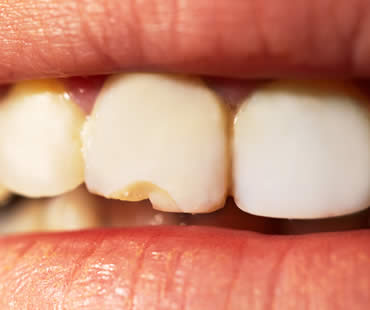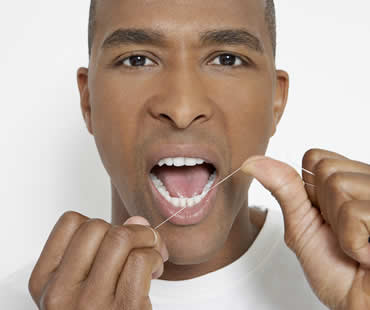
by Dr. Adkins | May 26, 2023 | Blog, Dental Topics 1, General Dentistry
How much do you really know about your mouth? Most people understand basic brushing and flossing, but they may not realize the myriad of factors that influence dental health. Knowing how your lifestyle impacts your teeth and gums can help you make the best choices to protect your smile.
True or False: You don’t need to floss every day.
Answer: False. Brushing alone won’t protect your mouth from decay or gum disease. Floss gets hard-to-reach areas, cleaning out the plaque and bacteria that wreak havoc on your oral health.
True or False: Taking care of your tongue is important, so you should brush it regularly.
Answer: True. The tiny bumps on your tongue called papillae trap food and bacteria, which can cause bad breath. Brushing twice a day will keep your breath smelling great.
True or False: Soft drinks and sports drinks don’t damage teeth.
Answer: False. These beverages, as well as red wine and fruit juices, can lead to enamel erosion. It’s best to stick with water, but if you consume these drinks, rinse your mouth when you finish.
True or False: It’s okay to put your baby to bed with a bottle of juice or milk.
Answer: False. When you let your baby or toddler fall asleep with anything but water, you increase the risk of baby bottle tooth decay. This condition occurs because of prolonged bottle feeding, usually during sleep. Young children don’t have good plaque removal, so these beverages provide a breeding ground for bacteria.
True or False: Fluoride reduces decay 20 to 40 percent.
Answer: True. Drinking water with fluoride strengthens tooth enamel and also reduces the amount of acid that the bacteria in your mouth produce. Since fluoride was added to the drinking water supplies across the country, childhood cavity rates have dramatically dropped.
Schedule a dental cleaning appointment today at our McDonough dentists office.

by Dr. Adkins | Mar 3, 2023 | Blog, Dental Topics 1, General Dentistry
Each year, more than 30,000 Americans receive an oral cancer diagnosis. Unfortunately, less than 57 percent will live beyond five years. In fact, the death rate for oral cancer is higher than cervical cancer, Hodgkin’s disease, brain cancer, and liver cancer. Usually seen in older patients, oral cancer in individuals under 40 is on the rise.
Fast Facts about Oral Cancer
• Early detection increases the survival rate to almost 90 percent.
• Initially, oral cancer patients may have few obvious symptoms of the illness.
• Certain factors, such as gender, lifestyle choices, and age can increase your risk of developing oral cancer. An estimated 25 percent of oral cancer patients, however, have no risk factors for the disease.
• Famous people who have battled oral cancer include Michael Douglas, Roger Ebert, Aaron Spelling, Humphrey Bogart, Eddie Van Halen, and Babe Ruth.
• Signs of oral cancer include a sore that does not heal after two weeks, color change in oral tissue, hoarse or scratchy throat, and difficulty with chewing or swallowing.
• Side effects of oral cancer may include chronic discomfort, loss of oral function, and difficulty in chewing, swallowing, or speaking.
• Research suggests that a diet rich in fruits and vegetables decreases your chances of developing cancerous lesions.
• Routine dental visits allow your dentist to look for signs of oral cancer, which can lead to early detection if there is a problem.
• Tobacco and alcohol use can result in a 75 percent chance of receiving an oral cancer diagnosis.
We treat patients from McDonough and the surrounding area

by Dr. Adkins | Feb 3, 2023 | Blog, Dental Topics 1, General Dentistry
Why wait until you have a toothache, bleeding gums, bad breath, or other problems to decide it’s time to start focusing on your oral health? Your mouth and your whole body can benefit from maintaining good oral health. Here is some simple advice that will help you along the path to a healthy smile.
Brushing and flossing
Tooth decay and gum disease are both preventable with proper brushing and flossing. Brush with a soft-bristled toothbrush and fluoride toothpaste, using a circular motion. It’s best to brush after every meal, but twice a day should be the minimum. Gently floss your teeth daily to remove food particles and bacteria between your teeth.
Eating right
Focusing on eating foods from each food group will aid your oral health in addition to your overall health. Not getting essential nutrients in your diet increases your risk of gum disease, and also makes it more difficult for your body to resist infection. Eat low fat dairy items, lean proteins, vegetables, fruits, and whole grains. Look for foods low in sugar, which can lead to tooth decay. Avoid snacking too much during the day when you aren’t going to brush your teeth afterwards, and drink plenty of water throughout the day.
Seeing your dentist
Visit your dentist at least twice a year for checkups. During these appointments, your dentist will look for problems and professionally clean your teeth. Delays in treatment of some conditions can cause them to worsen to the point that treatment may be more painful, difficult, or costly. Your dentist will help you keep your teeth and gums healthy so that you can keep smiling as long as possible.
We treat patients from McDonough and the surrounding area

by Dr. Adkins | Jan 13, 2023 | Blog, Dental Topics 2, General Dentistry
When you have a tooth or multiple teeth with extensive damage, your dentist may recommend a crown or bridge to restore your smile. Most of the time these restorations provide complete and successful results, but occasionally problems arise.
Tooth decay:
Good hygiene is imperative after a crown or bridge because plaque can build up in the area where the tooth and crown meet. Your crown can’t decay, but your tooth still can. Follow your dentist’s instructions for proper brushing, flossing, and fluoride use.
Gum disease:
Plaque buildup around a crown can cause gum disease called gingivitis, and if untreated advance to periodontitis.
Chipping or breaking:
Crowns and bridges are susceptible to damage like fracturing or chipping. Many crowns are made of porcelain, which can chip or completely fail. Heavy wear or stress such as teeth grinding can cause this type of damage, as well as an accident like hitting your restoration. Small chips may be repaired with composite filling, but larger damage can mean total replacement.
Incorrect color:
When having your crown or bridge made, you can choose from a selection of colors. However, the whitest shade is not advised because it likely won’t match the rest of your smile or it can look fake. Make sure you consider the color carefully or else you’ll be faced with redoing the restoration if you dislike it.
Falling out:
Several problems can cause your crown to fall out. The core may fail so that the interior portion of your crown is unable to provide a strong base for the restoration. Less likely, the cement can fail so that the crown simply needs stronger adhesion. Or, the post crown can dislodge so that you’ll see a large post sticking out of your crown. If your crown falls out, be sure to save it for your dentist in case it can be reinserted.
In most circumstances, these problems with your crown or bridge do not occur and you can enjoy a long lifespan with your restoration. If you do notice any of these issues, schedule an appointment with your dentist to ensure optimum oral health.
Our dental office is located in McDonough

by Dr. Adkins | Dec 23, 2022 | Blog, Dental Topics 1, General Dentistry
Cleaning between your teeth and along your gums with dental floss is just as important as using your toothbrush. Although many people complain about flossing or completely avoid doing it, there should be no excuse for neglecting this part of your dental hygiene routine.
Flossing your teeth allows you to get rid of food particles and plaque that is caught between your teeth. It is able to reach areas that your toothbrush can’t. Therefore, flossing plays a key role in preventing tooth decay, gum disease, and bad breath.
You should floss your teeth at least once every day, using a gentle touch so you don’t damage your gums. You can use waxed or unwaxed dental floss, depending upon your preference and which one works best for you. Interdental cleaning aids like picks and sticks may also be carefully used, as well as floss holders. These tools are especially helpful for those with arthritis and vision problems.
Another item that may help remove trapped food debris is a water spray tool called an oral irrigator, although it shouldn’t replace flossing. The same is true for mouthwash, which may be used to help rinse away germs and temporarily freshen breath. You can add these items to your hygiene routine, but giving up flossing should not be an option. Using dental floss is the very best way to attack food particles and plaque so that you have the greatest chance for a healthy mouth.
Dr. Adkins is a family and cosmetic dentist in McDonough

by Dr. Adkins | Dec 2, 2022 | Blog, Dental Topics 1, General Dentistry
Whether you call it pop, soda, soft drink, or something else, these terms all refer to a sugary, carbonated drink popular all over the country. It is estimated that Americans consume over 13 billion gallons of soft drinks each year. These beverages can cause serious health problems, including negative effects on your oral health.
Soft drinks are one of the most significant reasons for tooth decay, and it impacts all age groups. From babies drinking it out of bottles to teenagers drinking it all day long to older adults sipping it in retirement homes, it is deteriorating tooth enamel and eroding gums of everyone who consumes it.
Why are soft drinks harmful?
The high sugar content in the drinks is the root cause of trouble, and the high acid content adds to the threat. The sugar combines with bacteria in your mouth to create an acid, which adds to the acid from the drink itself. Then this mixture attacks your teeth. Each time you take a drink of the carbonated beverage, an acid attack begins in your mouth. During this time, your tooth enamel is weakened and cavities are just waiting to form. You may think that the risk goes away by drinking sugar-free soft drinks. Although these are less harmful, they are still acidic and can lead to decay.
How can I avoid harming my teeth?
The ideal way to rule out risks from soft drinks is to cut them out of your diet completely. If you think you just can’t live without them, here are some suggestions:
- Drink more water.
- Set a good example. Drink alternatives yourself and encourage your kids to do the same.
- Sip with straws. This helps keep the sugar from direct contact with your teeth.
- Rinse with water. After drinking a soda, rinse your mouth with water to reduce the amount of sugar and acid hanging onto your teeth and gums.
- Use fluoride toothpaste and mouth rinse. Using fluoride in your daily dental routine helps to reduce decay and strengthen enamel. Also ask your dentist about the possible need for professional fluoride treatments.
General dentist in McDonough – Schedule your appointment today.








 770-957-5214
770-957-5214  E-Mail Us
E-Mail Us 
